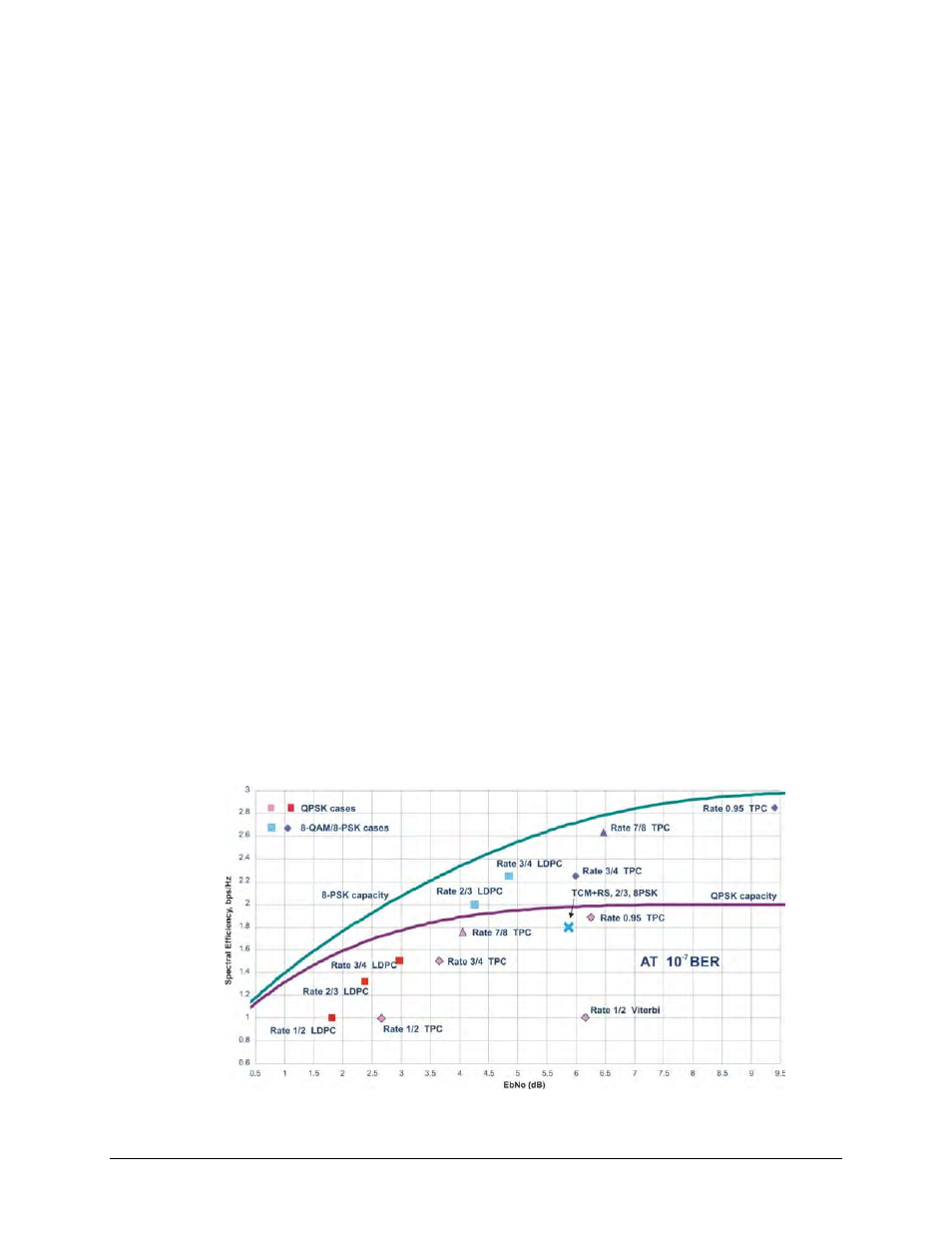B.7.2 tpc vs. ldpc – Comtech EF Data CDM-625A User Manual
Page 545

CDM-625A Advanced Satellite Modem
MN-CDM625A
Appendix B
Revision 3
B–9
too great; for decades, it remained of purely academic interest. Further interest in LDPC was
stimulated in 2003, when the Digital Video Broadcasting (DVB) committee adopted LDPC codes
(proposed by Hughes Network Systems) as the basis for the new DVB-S2 standard. Now,
however, with silicon gates being cheap, plentiful and fast, an LDPC decoder can easily be
accommodated in a large Field Programmable Gate Array (FPGA) device.
The LDPC method on its own produces an undesirable ‘flaring’ in the Bit Error Rate (BER) vs.
Eb/No characteristic, and for this reason it is desirable to concatenate a short BCH code with
LDPC. This concatenation produces almost vertical BER vs. Eb/No curves, as can be seen in the
performance graphs that are presented later. In order to take full advantage of the coding gain
increase that LDPC provides, it became necessary to find an alternative to 8-PSK. Comtech EF
Data has therefore developed an 8-QAM approach that permits acquisition and tracking at much
lower values of Eb/No than 8-PSK. Comtech EF Data’s implementation of 8-QAM is the subject
of a U.S. Patent, granted in 2007.
Comtech EF Data chose the CDM-600 platform as the first satellite modem in which to
implement both LDPC and 8-QAM, and the CDM-625A includes a newer technology version of
the original design.
B.7.2
TPC vs. LDPC
Is LDPC better than TPC? The answer must be ‘sometimes, but not always’, and there are issues
such as latency that must be taken into consideration. Figure B-1 graphs the performance of
various TPC and LDPC modes relative to the Shannon Limit – the Channel Capacity is shown for
both QPSK and 8-PSK. Error free transmission is not possible for values of spectral efficiency
(capacity) vs. Eb/No above these limit curves. The horizontal distance to the limit provides a
metric of overall performance.
It can be seen from this graph that, for Code Rates above 3/4, Comtech EF Data’s TPCs are very
close (1-1.5 dB) to the Shannon Limit. However, at 3/4 and below, LDPCs are performing 0.7-1.2
dB better than TPCs.
Figure B-1. TPC & LDPC Modes Performance (Relative to Shannon Limit)